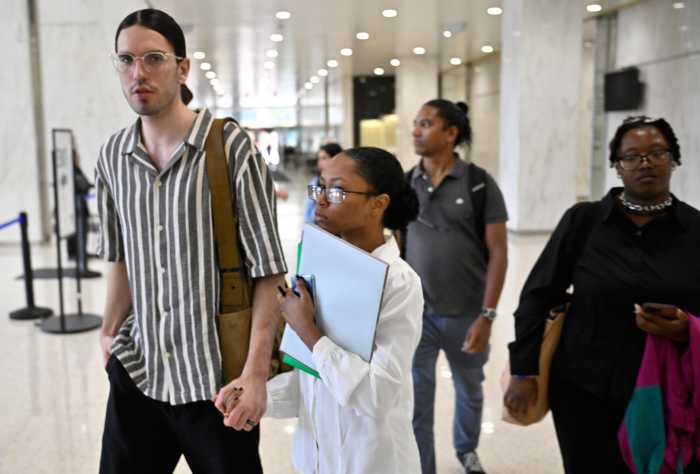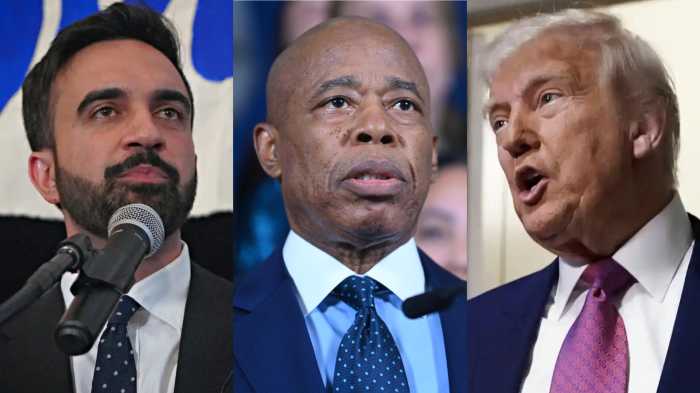
“If you look good, you feel good on the inside,” observed Travis Feltwater, 28, a retired Marine and recovering heroin addict, as he waited for a haircut at the Bowery Mission on Monday.
Feltwater, who lived in a truck for months in New Jersey, was awaiting the services of Josh Coombes, 29, a London hairdresser who bailed on serving fussy clients crying over their highlights to give haircuts to homeless people and refugees around the world.
Coombes was sponsored on his NYC trip — he will be clipping and trimming on the streets for two weeks and giving haircuts at the Bowery Mission for two days — by Leesa mattresses, which is celebrating the donation of its 10,000th mattress to homeless shelters. The company is paying Coombes, whose #dosomethingfornothing campaign now has almost 56,000 followers on Instagram.
Giving haircuts to people on the street has been an education in social justice and urban affairs for the Englishman.
“The reasons for someone being homeless are as long as your arm, but it really comes down to two things: Lack of infrastructure and family,” Coombes said.
Lots of people with addiction or mental health issues never become homeless because they have a resilient safety net, but individuals without strong and expansive family supports are more likely to be thrown into the gutter by a bump in the road, he explained.
Global income inequality is also rising, resulting in ever more people without a home. “The disparity between rich and poor is very big in all the cities I go to now,” said Coombes, who has snipped hair in the rues and avenidas of Paris, London, Melbourne, Sydney, Quito, Athens, Madrid and Mexico City.
Coombes may not be able to wash a client’s hair on the street, but armed with a spray bottle, dry shampoo and sachets more than half of those offered a haircut accepted his “guerrilla approach.”
But where do they sit?
“I run into the nearest cafe or pub and ask, ‘Can I borrow a chair?’ They say ‘why?’ and when I tell them, they often offer,” water and other items enthusiastically.
“We get the community together,” to accomplish a task for a person in need, he explained. “We’re not raising awareness: We’re raising compassion. . . . You can take these huge problems you can’t really connect with on the news and realize there is a moment” to help.
Some of Coombes’ clients have been prompted to reconnect with long-lost family members or to show up for a daunting job interview following their makeovers, he recounted.
While a haircut may not solve all a person’s problems, listening and personal attention often sparks “a little hope,” he said.






























